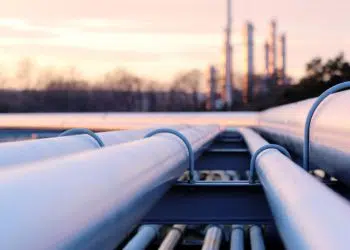Brussels – Three Italian pilot projects, out of six selected, will receive EU assistance to carry out energy renovation projects under the Citizen-Led Renovation (CLR) initiative — an EU-funded support service that helps communities overcome financial, legal, technical, and information barriers. In this context, a call for proposals was launched in April and closed on June 17, resulting in a selection of six pilot projects that “will receive full support in project development, implementation, and replication, providing a blueprint for other communities to follow,” the EU Commission described.
The first project is that of Castello Green House in the province of Ferrara. It is a renewable energy cooperative community (REC) focused on energy efficiency (EE) and renewable energy systems (RES) for residential buildings. “It aims to improve 9 buildings and involve 11 more for RES production. This includes 511 units (492 residences and 19 commercial spaces), with 320 units in 9 buildings getting both energy efficiency and RES upgrades, and 132 units (in four buildings) getting only RES upgrades.” The second project is that of Comunità energetica Rinnovabile di Antrodoco, in the province of Rieti, in Lazio, which focuses on improving energy efficiency in 12 residential and nonresidential buildings, targeting energy savings of 30-40% with better insulation, new windows, airtightness, and the addition of renewable energy like solar panels and heat pumps. “With a €1 million investment, the project seeks to cut energy use and carbon emissions,” the EU Commission highlighted. The third is the REC di Postua e Guardabosone, two municipalities in the province of Vercelli, Piedmont, aiming to improve energy efficiency in 15 residential buildings, including five families experiencing energy poverty. “They plan to use the CLR framework to gain knowledge about creating a local ecosystem, legal and technical aspects in Italy, monitoring and impact evaluation, communication campaigns, collective procurement, and designing a sustainable business model. The projected investment is €1 million, covering EE measures, renovations, technical assistance, communication, and renewable energy initiatives.”
The fourth project is the Girona Provincial Council in Spain – which, through its Environmental Service, “promotes energy transition and efficiency enhancement” — including “five energy communities aiming to understand citizen needs, set up local ecosystems, and enhance knowledge on legal aspects and monitoring.” The fifth project is the ZuidtrAnt (Belgium) cooperative, working with solar roofs, renovation coaching, and energy-positive hubs. With the Burenwerf project, the cooperative aims to renovate more residential buildings (to date, this project has successfully renovated 90 homes and reached 4,600 residential buildings with essential information) and expand the heating network. The last project is from an Austrian Company (Wohnungseigentümergemeinschaft der Liegenschaft 1020 Wien Ybbsstraße 6): “The project aims to renovate a residential complex consisting of 31 apartments with comprehensive renovation work and the installation of photovoltaic (PV) panels. The owner seeks assistance in forming an energy community and managing various aspects such as communication, invoicing/procurement, and legal considerations.”
Finally, the Commission said the Call targeted established and prospective energy communities, inviting citizen groups, local authorities, NGOs, and other organizations to lead renovation projects. By participating, these entities gain access to tailored support in administrative, technical, and communication aspects. Selected communities commit to sharing information, mobilizing citizens, hosting events, and demonstrating replication potential.
English version by the Translation Service of Withub





![[foto: archivio]](https://www.eunews.it/wp-content/uploads/2014/05/risparmio-energetico.jpg)



